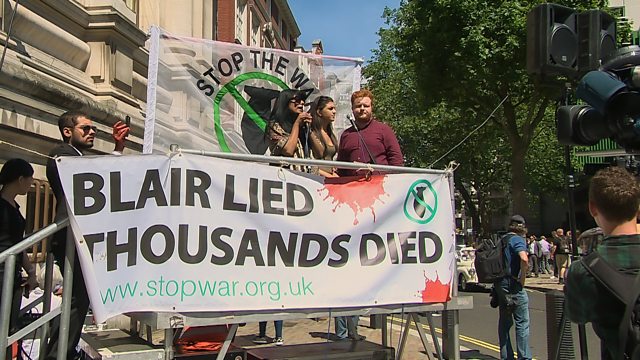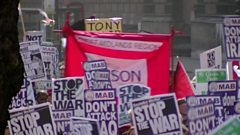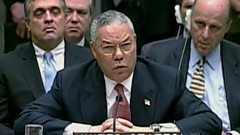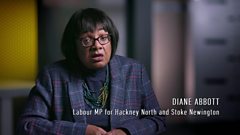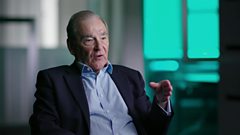Episode 4
After the tragedy of 9/11, Tony Blair stands beside America in the war against terror. The fallout of his decisions marks the biggest challenge to his premiership.
Following the catastrophic terror attacks on 11 September 2001, Tony Blair flies to the US and promises to stand beside them no matter what. Blair and his team keep America focused on Afghanistan, where al-Qaeda – the terror group responsible for the attacks – and its leader Osama Bin Laden are based. But soon the Pentagon begins to shift military resources away from Afghanistan and towards Saddam Hussein’s Iraq, which has become a chief target in George Bush’s ‘War on Terror’.
Over the following months, Tony Blair fulfils his promise to stand by America while also trying to persuade President Bush to seek UN backing on the Iraq conflict. At the same time, the prime minister faces huge criticism from the British public and Parliament for supporting America’s ambition to topple Saddam Hussein. Some of his most vocal critics are from his own party. But Blair, convinced of the evils of Hussein’s dictatorship, commits himself to defending western democracy and values.
In March 2003, Blair defeats a Commons anti-war vote with a majority of 179. It is the final obstacle to UK involvement in the war with Iraq. We chart the fallout of British intelligence reports suggesting the existence of weapons of mass destruction in Iraq and New Labour’s decision to publicise those findings – leading to a media frenzy, and some months later, to the tragic death of weapons expert Dr David Kelly. After the resignation of Blair’s closest ally and defender, Alastair Campbell, he is more exposed than ever as members of his own party continue to speak out against him.
The conflict begins in May 2003, quickly displacing Saddam Hussein and toppling his empire. But celebrations turn into violence when sectarian tensions begin to flare up. We hear Tony Blair and his ministers reflect on the war, defending their decisions and voicing regrets at the handling of the aftermath.
Last on
Clips
-
![]()
One million march
Duration: 01:45
-
![]()
The drumbeat of war
Duration: 02:37
-
![]()
Public opposition to war
Duration: 01:21
-
![]()
The road to war
Duration: 01:44
Credits
| Role | Contributor |
|---|---|
| Executive Producer | Steve Condie |
| Director | Pamela Gordon |
